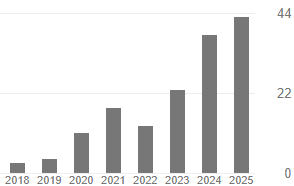Intention to Recycle E-Waste Among TVET Institution Practitioners: Analysing Factors Using Partial Least Squares Structural Equation Modelling
Keywords:
Attitude, Environmental Awareness and Knowledge, E-Waste, Subjective Norm and Intention, SustainabilityAbstract
The widespread adoption of electronic devices has enhanced modern lifestyles but also accelerated the generation of electronic waste (e-waste) due to shorter product lifespans. To address this challenge, an e-waste collection centre was established at Polytechnic Sultan Haji Ahmad Shah (POLISAS). However, limited utilization of the collection box has resulted in low e-waste recovery compared to the institution's high gadget usage. This study investigates the behavioural factors influencing e-waste recycling intentions among POLISAS staff, focusing on environmental knowledge, attitudes, and subjective norms. Using Partial Least Squares Structural Equation Modelling (PLS-SEM), data from 85 staff members were analyzed. Results indicate a strong intention to recycle e-waste (mean = 4.109), with attitudes and subjective norms showing significant positive correlations with recycling intentions. However, environmental knowledge and awareness were not significant predictors. From an engineering standpoint, these findings suggest that effective e-waste management systems must prioritize social and behavioural drivers. Engineering solutions could include optimizing collection infrastructure, integrating user-friendly systems, and leveraging social influence through strategic campaigns. These approaches are critical for enhancing recycling rates in educational institutions and addressing the broader issue of e-waste. This research highlights the importance of engineering systems designed to support and promote sustainable behaviours, contributing to improved e-waste management and fostering environmentally responsible practices within institutional settings.
Downloads
Published
How to Cite
Issue
Section
License
Copyright (c) 2024 Politeknik & Kolej Komuniti Journal of Engineering and Technology

This work is licensed under a Creative Commons Attribution-NonCommercial-NoDerivatives 4.0 International License.







